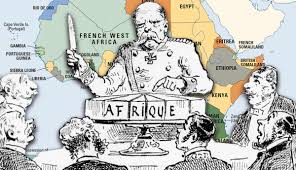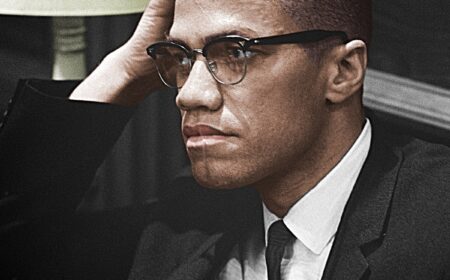The Creation of Birthright AFRICA
The two began a correspondence and eventually decided to launch the program together. In October, 2016, Johnson, who is thirty-three, and Elsheikh, who is thirty-eight, travelled to Ghana, where they met local entrepreneurs and saw relevant sights: everything from the notorious Cape Coast Castle, the center of the transatlantic slave trade, with its “door of no return,” to W. E. B. Du Bois’s last home, in Accra.
Elsheikh, who grew up in Uganda, Sudan, and Sweden, said, “Ghana is really seen as the gateway to Africa. Birthright AFRICA is built around the Ghanaian principal of sankofa—in order to know where you’re going, you have to know where you’re from.” The organization has, to date, financed a trip enabling seven young Americans to make the journey.
One evening, a City University program called Black Male Initiative, which supports access to higher education for students from underrepresented demographics, held a fund-raiser, in part for Birthright AFRICA. The m.c. was Jeff Gardere, also known as Dr. Jeff, a popular TV psychologist (Orion TV’s “Lauren Lake’s Paternity Court,” Reelz’s “They Got Away with It”). Lots of B.M.I. students attended the event, which featured an open bar and trays of chocolate desserts. Guests could be overheard chatting about clubbing (“We used to slow-jam at Leviticus back in the day”) and medical appointments (“Black men don’t like two things: prostate exams and therapy”).
All CUNY B.M.I. students of African descent between the ages of eighteen and thirty are eligible to apply for free Birthright AFRICA trips. Those who make the cut, Gardere said, explaining the program to the crowd, will first visit the African Burial Ground National Monument, in downtown Manhattan, and the National Museum of African American History and Culture, in Washington, D.C. Then, he said, dropping his voice to a whisper—“we’re going to give them ten days in Ghana.”
At Gardere’s prompting, guests began to raise their hands and pledge donations. An employee of Brooklyn College said, “A hundred dollars!” Gardere encouraged the crowd with impromptu personal incentives—“You wanna meet Phaedra from ‘Real Housewives’?”
Meanwhile, prospective Birthright AFRICA applicants were learning about the program for the first time. Jaleel Thomas, a young man in a suit, who was from Chicago, said he was intrigued. “I have a potential internship with Deloitte this summer,” he said. “But if you say, ‘Hey, Jaleel, I want you here in Ghana for ten days,’ I will make it happen.”
Devon Simmons, a tall criminal-justice student at John Jay, is the first graduate of CUNY’s Prison-to-College Pipeline, and he was interested in Birthright AFRICA’s international opportunities. “I just came back from study abroad in Cape Town, doing some research in regards to incarceration over there,” he said. “Next stop is Cuba, this summer.”
Elsheikh, Birthright AFRICA’s co-founder, is still in New York, but Johnson, now the program director, moved to Langma, Ghana, last year, in order to oversee ground operations. Elsheikh said, “Some of the scholars who made the trip were so into this myth” fuelled by the negative image of Africa presented to Americans. Making the trip “changed their life trajectory.”
The myth was further fuelled when President Trump referred to Haiti and some of the nations of Africa as “shithole” countries. “So it’s that much more relevant to dispel,” Elsheikh said, “particularly for people of African descent. Because it really hits your soul.” Johnson said, “We are not pushing a political agenda. But it’s inherently political to educate and empower black people.”
On the evening of the B.M.I. fund-raiser, a New York State assemblyman named Michael Blake gave the closing comments. “Don’t tell us our kids are not exceptional!” he shouted. “And I say to you, in the words of the great philosopher Fat Joe”—the Bronx’s own—“Nothing can stop you, you’re all the way up!”
READ MORE AT: https://www.newyorker.com/magazine/2018/02/12/roots/amp





